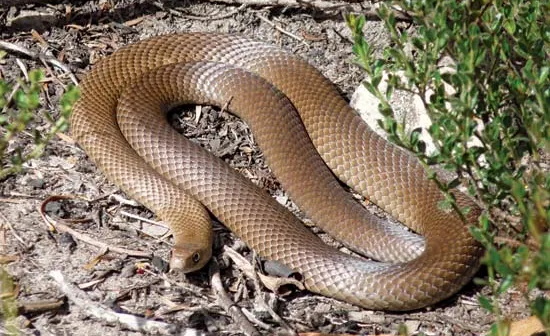Why every parent should have an understanding of snakebite first aid
- Written by NewsServices.com

The reality is, we have more venomous snakes here in Australia than anywhere else in the world, and often people don't realise that they are in the same vicinity as them until it's too late and they've been bitten. Snake bites can be fatal so as a parent, it is imperative that you act quickly if you're child has been bitten.
How to prevent snake bites
While you cannot prevent snake bites altogether, you can take extra precautions when outdoors. The first thing is to not start catching snakes yourself. You can do this by ensuring that your child is wearing long pants and enclosed shoes, and by keeping an eye on them when they are playing near shrubs, bushes or areas where snakes could potentially hide. Additionally, educate your children on the dangers of snakes and to never touch one if they see one, rather they should get a parent immediately.
Are there more snakes around in summer?
Snakes, like most reptiles, are cold-blooded and are typically dormant during the cooler months. When the weather warms up, the snakes come out more to make the most of the heat and sun they need to warm their bodies, so it's likely that if you are going to come into contact with a snake, it'll be in the warmer months of the year for this reason.
Will snakes bite for no reason?
Snakes will typically only bite someone when they are feeling threatened. In most instances, they are scared of people and will try to get away when they see someone coming near them, they will not chase after you to bite you.
How do I prevent snakes from hanging around my property?
Whilst you can't stop snakes from entering your property altogether, you can do some things to ensure that they aren't attracted to your place. This includes removing rubbish or items from the backyard that don't need to be there that can be used for hiding spots. Remove anything that can fill with water and provide them with a water source, keep your gardens maintained and don't let them get overgrown. Lastly, if you have chickens or ducks, ensure their enclosure is kept clean and secure at all times.
Are snake bites common?
Snake bites are considered rare here in Australia, and the outcome is very good. Anti-venom treatments are more advanced than ever and most people act quickly when they or someone else has been bitten by a snake. A lot of snake bites don't require anti-venom too.
What to do if your child gets bitten by a snake
All snake bites should be treated as venomous snake bites especially if you haven't seen the snake or don't know what type it was.
Remain calm and follow the below steps:
-
Move the child away from the snake, carry them if you can as moving can increase the rate that the venom travels through the body.
-
Reassure them and tell them to keep calm.
-
Call 000, ask for an ambulance.
-
Apply a pressure immobilisation bandage
To apply a pressure immobilisation bandage correctly, follow these steps below:
Apply a pressure immobilisation bandage over the bite, ensuring that you use firm pressure when wrapping the bandage around the bite. You shouldn't be able to push a finger between the bandage and the skin.
Immobilise the entire limb. You can do this by wrapping another bandage around the initial bandage, however, this time, start at the fingertips or toes and work your way up until the entire limb is wrapped. Splint the affected limb to keep it still. Mark the site of the bite if you have a pen handy, and keep the child calm while you wait for help to arrive.
DO NOT - Don't wash the bite area, cut the wound, apply a tourniquet or attempt to suck out the poison.
What are the signs of a snake bite?
Little children may not even know that they have been bitten by a snake other than they are sore and start to feel sick. If your child has been playing outside and they are starting to feel sick, give their body a check over to make sure that they haven't got any bite marks. A snake bite appears as a two fang bite. Sometimes fangs can break and a one fang puncture mark may be present.
What are the symptoms of a snake bite?
Here are some common side effects of a snake bite:
-
Nausea and vomiting
-
Stomach pain
-
Headaches
-
Drowsiness
-
Droopy eyelids
Why is learning snake bite first aid so important for parents?
Learning snake bite first aid allows parents to treat a snake bite with confidence by applying the right technique. This can ensure that the venom doesn't have a chance to pump through the body and leads to better patient outcomes. Anyone can learn the snake bite procedure, it's simple, and it could potentially save a life one day.
Where can I learn snake bite first aid?
Accredited first aid courses gold coast such as ours here at Paradise First Aid offer snake bite first aid in the training. You'll be taught step by step what you should be doing if you or someone else gets bitten by a snake and the techniques and methods you can use if you don't have a snake bandage on hand.
If you'd like to learn first aid or update your skills, contact our professional team today to book yourself in.




